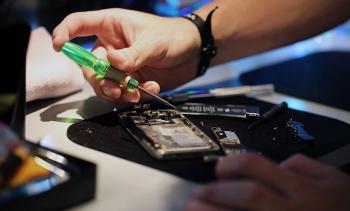The European Parliament has been discussing how to encourage device makers to make their products more durable and easier to repair. Yesterday some recommendations were published which, if enforced, could see devices created with longer useful lifespan. Furthermore, planned obsolescence for physical goods, and software, looks like it is being tackled head-on as it will be defined and then "appropriate dissuasive measures for producers," introduced.
Behind these initiatives is a 2014 Eurobarometer survey. The survey found that 77 per cent of EU consumers "would rather repair their goods than buy new ones, but ultimately have to replace or discard them because they are discouraged by the cost of repairs and the level of service provided".
You can find the bullet pointed list of recommendations below, as published on the European Parliament news page:
- robust, easily repairable and good quality products: “minimum resistance criteria” to be established for each product category from the design stage,
- if a repair takes longer than a month, the guarantee should be extended to match the repair time,
- member states should give incentives to produce durable and repairable products, boosting repairs and second-hand sales - this could help to create jobs and reduce waste,
- consumers should have the option of going to an independent repairer: technical, safety or software solutions which prevent repairs from being performed, other than by approved firms or bodies, should be discouraged,
- essential components, such as batteries and LEDs, should not be fixed into products, unless for safety reasons,
- spare parts which are indispensable for the proper and safe functioning of the goods should be made available “at a price commensurate with the nature and life-time of the product”,
- an EU-wide definition of 'planned obsolescence' and a system that could test and detect the 'built-in obsolescence' should be introduced, as well as “appropriate dissuasive measures for producers”.
iFixIt type product labelling
In addition to the above new product durability and repairability initiatives, a product labelling scheme was proposed. A voluntary European label should highlight a product's durability, eco-design features, and upgradeability in line with technical progress and reparability.
The labelling resolution was passed with an overwhelming majority of 662 votes to 32, with two abstentions.
In recent related news the Microsoft Surface Laptop scored a dismal zero out of ten for reparability on the iFixIt site.








